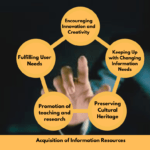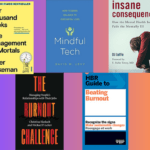The 21st century is the era of extreme AI aggression, yet even these aggressive activities have not been able to scare away the simple hobbies of humans. People still buy books, and fairs are held to buy and sell books. Buyers are buying books on their own; some are looking at books. Some do not have the urge to buy books immediately. They buy their favorite books and make a list. When they get home, they make a mental note of which books they will buy, from which store, and who they will buy with to save more money.
Those who have become regular residents in the world of books, both as a hobby and a profession, have a presence in their minds, and for good reason, they sometimes have to face questions from experts. In most cases, their questions are like this: choosing a book in such a crowd of books is a big problem. Very complex question. Giving an even more complex answer. Different buyers, different tastes. Only they understand what book to buy.

Reasons for Buying Books
People enjoy buying books for a multitude of compelling reasons, each tapping into different aspects of human experience:
1. Personal Enjoyment and Escapism—Books serve as gateways to alternate realities, allowing readers to immerse themselves in various imaginative landscapes, embark on thrilling adventures, or simply indulge in the richness of diverse narratives. Through the pages of a book, one can temporarily step away from everyday life and into a world that stirs the spirit and fuels the imagination.
2. Learning and Self-Improvement – The pursuit of knowledge drives many individuals to seek out books. Whether it’s mastering a new skill, keeping abreast of the latest developments in science, or deepening one’s understanding of philosophy or psychology, books are invaluable resources for personal growth and enlightenment.
3. Collecting and Aesthetics – For some, books are not just reading material but cherished collectibles. Building a personal library provides a sense of achievement and pride, transforming shelves into showcases of beauty and intellect. The aesthetic appeal of beautifully bound volumes often enhances the ambiance of a home, turning a simple room into a sanctuary of literature.
4. Emotional Connection—Owning a book fosters an emotional bond between the reader and the text. It allows individuals to revisit cherished stories or profound ideas that have left lasting impressions on their lives. The experience of rereading a beloved book can evoke nostalgia, comfort, and a sense of familiarity that enriches one’s personal narrative.
5. Convenience and Accessibility—Having a book at hand—be it in print or digital format—offers the convenience of immediate access to information and entertainment. With a collection of books, one can explore topics of interest at their leisure, free from the confines of internet searches or the unpredictability of external sources.
6. Gifting and Sharing – The act of giving books as gifts carries a special significance. Each title chosen reflects thoughtfulness, offering friends and loved ones not only enjoyment but also inspiration and new ideas. A carefully selected book can spark heartfelt conversations and forge deeper connections between people.
7. Nostalgia and Sentimental Value—Books often evoke powerful memories from childhood or pivotal life experiences. Whether it’s a beloved fairy tale or a classic novel that marks a transitional phase, the sentimental value of these stories enriches the reader’s life, turning pages into portals of reminiscence.
8. Supporting Authors and Publishers – Many avid readers are motivated by a deep respect for the craft of writing and the publishing industry. Purchasing books is a way to support authors whose work resonates with them, ensuring that their voices continue to be heard and contributing to the vibrancy of literature.
9. Sense of Ownership – The physical presence of a book in one’s possession brings about a gratifying feeling of ownership. Each book represents countless possibilities and adventures, providing a sense of accomplishment, satisfaction, and the promise of new stories waiting to be discovered.
10. FOMO (Fear of Missing Out) – The influence of social trends can spark a desire to own the latest bestsellers and critically acclaimed titles. The allure of being part of a cultural conversation or not missing out on a viral phenomenon often propels individuals to add popular books to their collections.
Ultimately, the allure of books lies in their unique ability to offer an intricate blend of intellectual stimulation, emotional resonance, and aesthetic pleasure. They resonate deeply with many, enriching lives in countless ways.
Process of Buying Books
How do we buy books? How much commission will we get? Such thoughts also circulate in the minds of many. No matter which book is bought, there are several processes that must be followed.
- Among these, the first thing that comes to mind is the author. Has the person whose book is to be bought written other books before? Are the previous books praised in the literary world? Does he promote any political ideology in his writings, or is he restrained and neutral enough to write? Does he use obscene language to increase the book’s sales, or is he determined to build a new society? What is the goal of his writing? Do you write for the sake of writing, or do you have a commitment to society? Is there a presence of business and ingenuity in the author’s book, or does he create art for the sake of art? These can be considered.
- Similarly, the publisher should also be judged. It is better to buy a book based on the opinion of some readers about the ‘publisher.’ A renowned publisher cannot always publish good and bad books. Their publications are selected; the authors are renowned and popular. Renowned publishers are not as enthusiastic about publishing books by controversial authors.
- The third step is about the book. About the book that I will buy. It is better to refrain from buying newsprint books at home unless absolutely necessary. Although the price is a little higher, it is better to buy them in board binding than in paperback. They are also easier to store. They do not require any support when arranging.
Finally, it can be said that buying and collecting books must have a goal. Without a strong goal, a specific target, and a commitment within oneself, no work can be dedicated. Ideals are the source of inspiration and strength. Targets are commitments. If you buy selected books with the aim of building the next generation with the dream of building a new society in mind, with confidence, then you can only hope that the program will be fruitful. That is why it is said, ‘No one goes bankrupt by buying books. Books are the faithful friends of today and tomorrow.’



